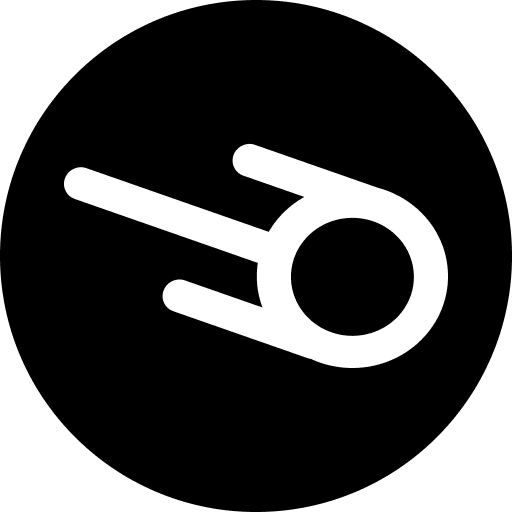.jpg)

Let’s walk through the cheapest ways to buy Bitcoin. In this guide, we’ll take you through low-cost exchanges — and discuss how you can minimize fees on your Bitcoin purchases.
Popular Low-Fee Exchanges and Services
Understanding fees vs. spread
To better understand Bitcoin transaction costs, it’s important to understand the difference between fees and spreads.
- Transaction fees: A fee is the cost of buying/selling BTC.
- Spread: The difference between the buy and sell price of Bitcoin on an exchange. A tighter spread means you’re getting a better price.
While some platforms offer zero fees, they make money through spreads. Before you get started with an exchange, you should understand their fee and spread policies.
Understanding maker and taker fees
Many Bitcoin exchanges have two types of fees: maker fees and taker fees. Let’s explain what these fees are and when you’ll encounter them.
What are maker fees?
A maker is someone who adds liquidity to the marketplace.
For example, if you place an order to buy Bitcoin at a lower price than the current market price, it will remain on the order book until a seller agrees to sell at that price. Maker fees are usually lower than taker fees because you’re helping the platform by increasing its liquidity.
What are taker fees?
A taker removes liquidity from the exchange by placing an order matching existing prices.
For example, if you place a market order to buy Bitcoin instantly, you’ll pay the taker fee. Taker fees are typically higher because you’re reducing the platform’s available liquidity.
Maker vs. Taker Fee Example
Bitcoin is trading at $30,000, and you decide to make a purchase.
Maker: You place a limit order to buy Bitcoin at $29,500. If the price drops and your order is filled, you’ll pay a maker fee (e.g., 0.25%).
Taker: You place a market order to buy Bitcoin immediately at the current market price of $30,000. In this case, you’ll pay a taker fee (e.g., 0.40%).
Why Maker and Taker Fees Matter
Lower fees: Maker fees are generally lower. If you're a patient trader, using limit orders can save you money.
Speed vs. Cost: Taker fees apply when you need to buy Bitcoin quickly at the market price. That means that executing a trade quickly can come with a greater cost.
How to minimize the cost of buying Bitcoin
Looking for ways to minimize Bitcoin fees? Consider the following strategies:
- Use Bitcoin-only services: Platforms focused solely on Bitcoin often provide better security and lower fees.
- Take advantage of direct deposit: Some services allow fee-free Bitcoin purchases if you directly deposit funds.
- Consider annual subscriptions: If you’re an active trader, subscriptions like Coinbase One offer reduced trading fees in exchange for a flat monthly/yearly fee.
Hidden Costs of buying Bitcoin
Don’t forget about the other types of fees you may encounter when buying Bitcoin:
- Deposit fees: Some exchanges charge fees depending on your payment method. Typically, credit card purchases are subject to high fees.
- Withdrawal fees: Some exchanges charge a fee for moving your cryptocurrency off the platform.
- Network transaction fees: Fees vary depending on network usage, so it’s important to keep an eye out on current network fees.
Comparing costs across exchanges
The best exchange for you may differ depending on the size of your purchase and whether you plan to move your Bitcoin to cold storage.
- Small purchase fees: Some platforms charge higher fees for smaller purchases. For example, a $100 purchase may have a much larger fee than a $10,000 purchase.
- Large purchase fees: For a $10,000 buy, a hidden spread of 0.85% could make a difference of $85. In this case, exchanges with no spreads like Kraken may be the most cost-effective option.
- Withdrawal fees: If you’re planning to move your Bitcoin to a self-custody wallet, you should take note of withdrawal fees. These fees may vary depending on the type of cryptocurrency and the method of the withdrawal.
Alternative ways to acquire Bitcoin
If you prefer methods outside traditional exchanges, consider the following:
- Peer-to-peer platforms: Services like Bisq, Hodl Hodl, and RoboSats allow users to trade Bitcoin directly with other users.
- Bitcoin ATMs: Bitcoin ATMs are physical kiosks often found in malls, gas stations, and airports that allow you to buy and sell Bitcoin. While convenient, they tend to have higher fees than the exchanges listed above.
- Earning Bitcoin: Some exchanges offer Bitcoin referral or affiliate rewards for helping to attract new customers.
What to consider when choosing an exchange
While minimizing fees is important, there are other factors to consider when choosing an exchange:
- Security: Look for exchanges with a strong reputation for security. Read third-party reviews and understand the measures the platform takes to protect your crypto.
- Ease of use: If you’re a beginner, you should choose an exchange with a user-friendly interface.
- Payment methods: Look for exchanges with different payment methods like bank transfers, debit cards, or direct deposit.
- KYC: While centralized exchanges require you to submit Know Your Customer information, peer-to-peer exchanges allow you to make trades without submitting personal information.
Tips for timing purchases and transfers
BTC fees can vary depending on when you make your purchase. Here’s what you should know:
- Understand network congestion: Bitcoin transaction fees fluctuate based on network demand. By timing your transaction, you can reduce associated fees.
- Use block explorers: Blockchain explorers for Bitcoin like mempool.space can help you track current network fees and find the optimal time for your transaction.
How to minimize Bitcoin fees
Eventually, you may wish to sell your Bitcoin. Here are a few steps that you can take to minimize fees:
- Compare sell fees across exchanges, as they may differ from buy fees.
- Take advantage of subscription/loyalty programs that can help reduce fees.
- Use limit orders to control the sale price. Limit orders allow you to pay maker fees (typically lower than taker fees)
Conclusion
If you’re getting started with your Bitcoin journey, you should find a reputable exchange that offers low fees and high security. Do your own research to see which platform best fits your unique needs.
Frequently asked questions
- How can I minimize Bitcoin trading fees?
To minimize transaction fees, you should use limit orders to pay maker fees, take advantage of platforms with recurring purchase options like River and Swan Bitcoin, and consider direct deposit options on platforms like Cash App.
- What is a spread, and why does it matter?
A spread is the difference between the buy and sell price of Bitcoin on an exchange. A lower spread means you're getting a better price. Some platforms with zero fees use spreads to generate revenue, so it’s important to understand your exchange’s policies before making a purchase.
- Are there any hidden costs I should be aware of?
Yes. Hidden costs can include withdrawal fees, network transaction fees, and deposit fees (especially when using credit cards). Make sure to factor these in before choosing a platform.
- What are the benefits of recurring Bitcoin purchases?
Platforms like River and Swan Bitcoin allow users to automate recurring buys, often with zero or reduced fees. This strategy, known as Dollar Cost Averaging (DCA), also helps reduce the impact of market volatility and build your Bitcoin holdings over time.
- How can I avoid high network fees?
Use tools like mempool.space to find optimal times for making transactions. Fees tend to be higher when more people are using the Bitcoin network.































%20(1).png)

















.png)
















